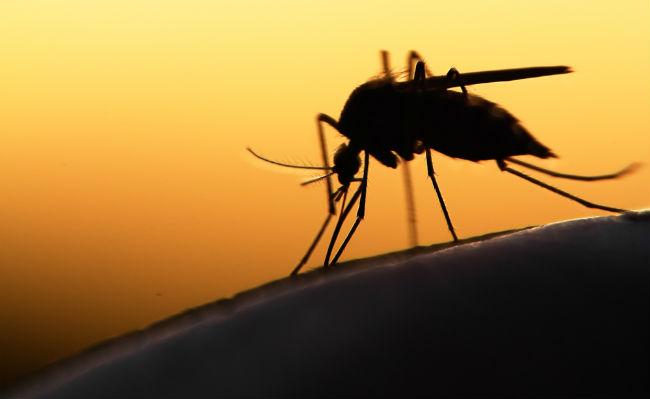
For most U.S. residents, the mosquito is an annoyance that simply comes with the summer territory, but across the developing world, it’s a vector of disease. Zika is the most obvious mosquito-borne illness people are buzzing (zing!) about lately, but in the tropics, malaria and dengue fever spread through mosquitos, with malaria alone killing half a million people in 2014. People are naturally afraid of the tiny death mongers and willing to try anything to keep them at bay. Even if “anything” doesn’t have a shred of scientific backing.
Enter LG and their “mosquito repelling” TV.
Does Ultrasound Repel Mosquitos?
LG’s television supposedly emits ultrasonic waves well above the range of human hearing. The claim is that mosquitos, specifically the disease carrying Aedes aegypti, are sensitive to ultrasonics — so if you plug in what amounts to a constant loop of mozzie death metal, it’ll irritate their antennae enough that they’ll flee to some other place that doesn’t have an ultrasonic TV. (So, to your neighbors’ house.)
The problem is that mosquitos couldn’t care less about ultrasonics. It’s been tested and retested and every time, it hasn’t stopped the little bloodsuckers from showing up. So the ultrasonic TV, or any ultrasonic gimmick, isn’t going to work. In fact there’s a pretty good chance the cheaper stuff won’t emit ultrasonic waves at all. It’s not like you’ll be able to hear the difference.
But just because that doesn’t work doesn’t mean you can’t put the little monsters in their place.
Mosquito-Proofing Your House
There are two ways to keep mosquitos away from your house: 1) putting up netting that keeps them out, and 2) getting rid of the places they like to get raunchy. The former is pretty simple, as you’ll find mosquito netting in any hardware store and fixing your window screens is a relatively simple job.
The latter will involve finding and either getting rid of or sealing off any pools of standing water, which is where mosquitos like to throw their wild parties. These standing water orgies are where mosquitos pick up diseases like malaria in the first place; the disease grows in the water and transitions into the mosquito larva. Even something as simple as water in a cupped leaf can be a mosquito motel, so don’t let standing water endure near where you live. If you have a pond on your property, introduce mosquito-eating fish.
Which is all fine and well, indoors. But what about when you decide to go outside?
Which Mosquito Repellents Work
The good news is that there’s an effective, lab-tested mosquito repellent. The bad news is that it’s DEET, a chemical which doesn’t have a great reputation. Even the people who argue DEET is safe don’t think it should be used on irritated skin or on children under 2. If you’re using DEET, look for concentrations below 30 percent and try to get it in a spray form, which will make you less likely to absorb it through your skin.
If you’re concerned about DEET, your other option is lemon eucalyptus oil, also called citriodiol, which contains relatively high quantities of menthoglycol. That particular chemical is currently being investigated as a DEET alternative, so don’t get suckered by more expensive products using the word “natural” to drive up the price. Look for the chemical name on commercial repellents instead. That said, there is one downside, as lemon eucalyptus oil has a strong citronella smell with a hint of lemon. Still, would you rather smell like cleaning supplies or be covered in mosquito bites? As for other essential oils, some of them work, but not nearly as effectively.
Point being, a few bites are no big deal, but if you’re traveling into a Zika, dengue, or malaria hot zone, or if you’re worried about Zika here in the U.S., go with the tried and true.
